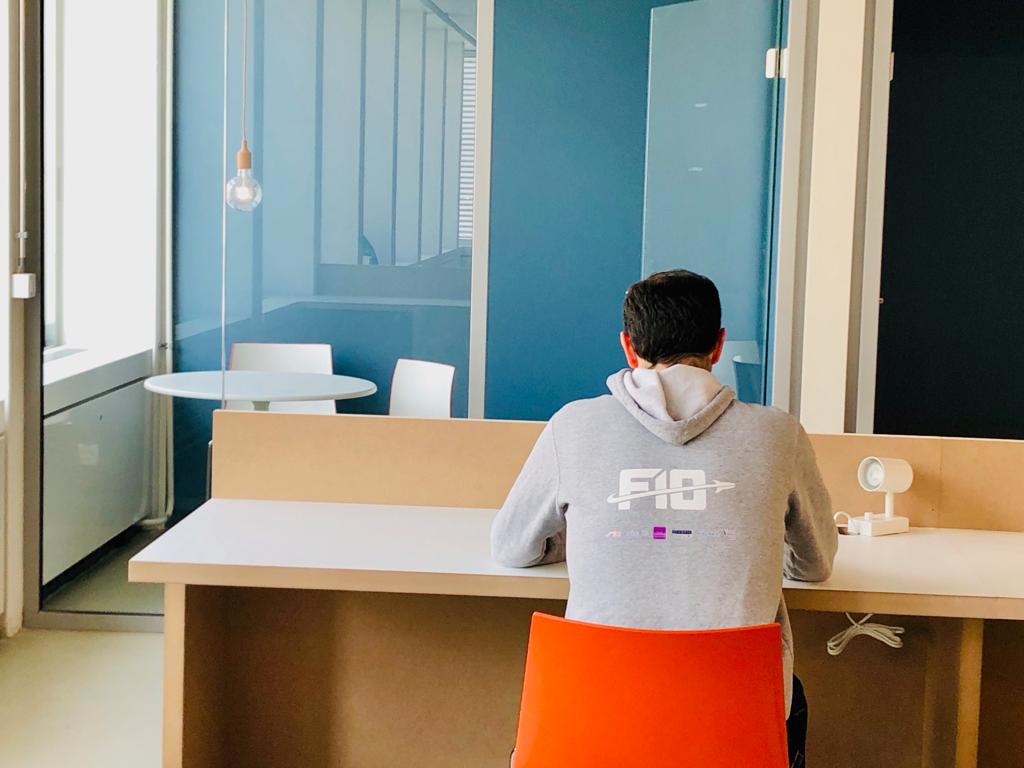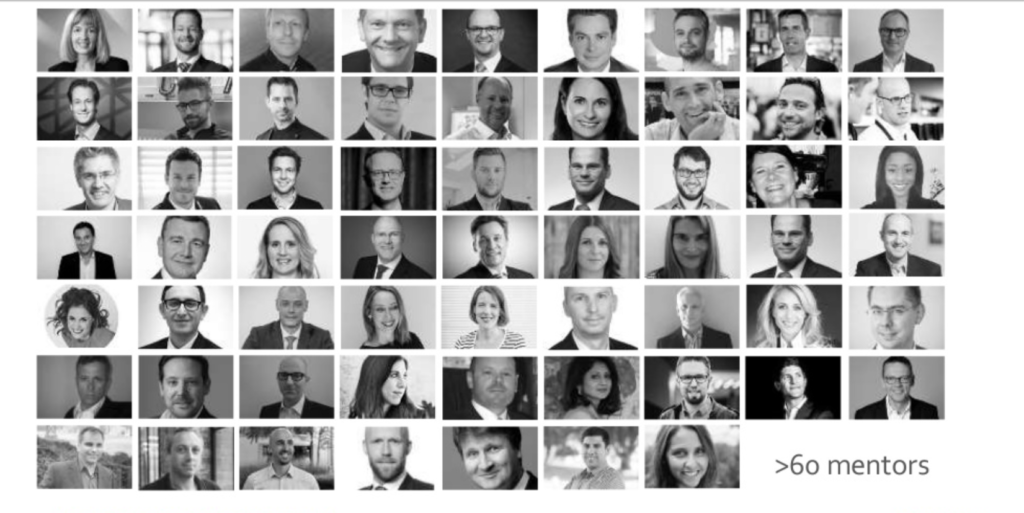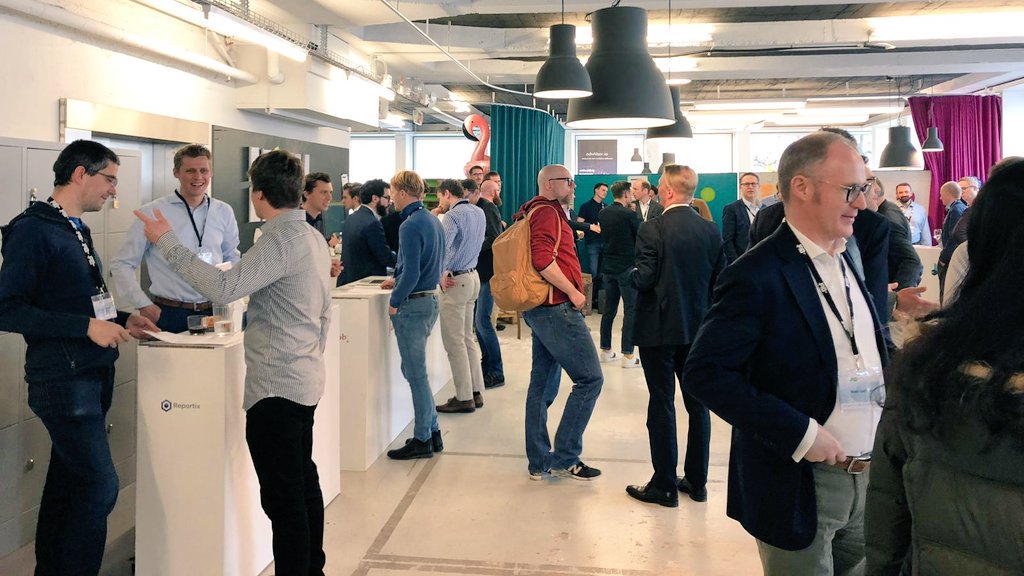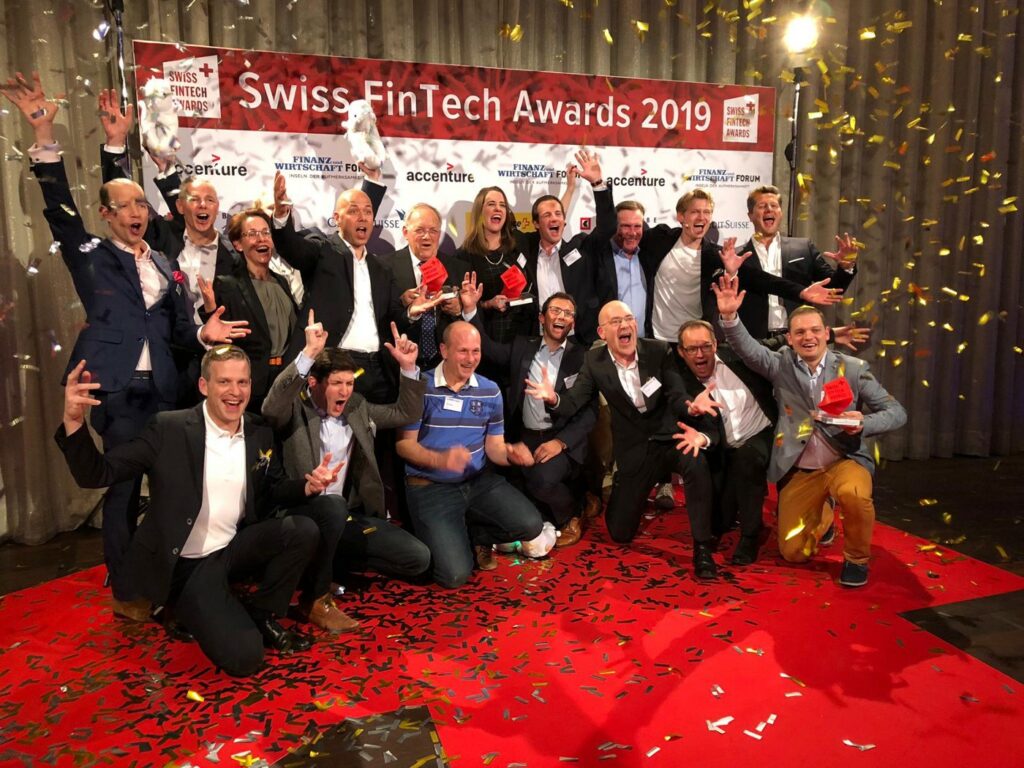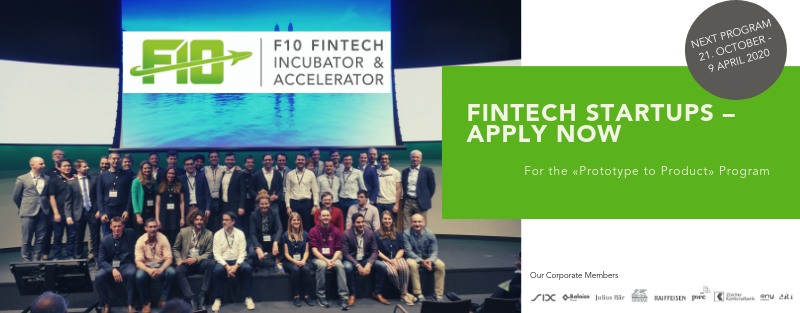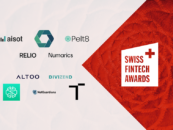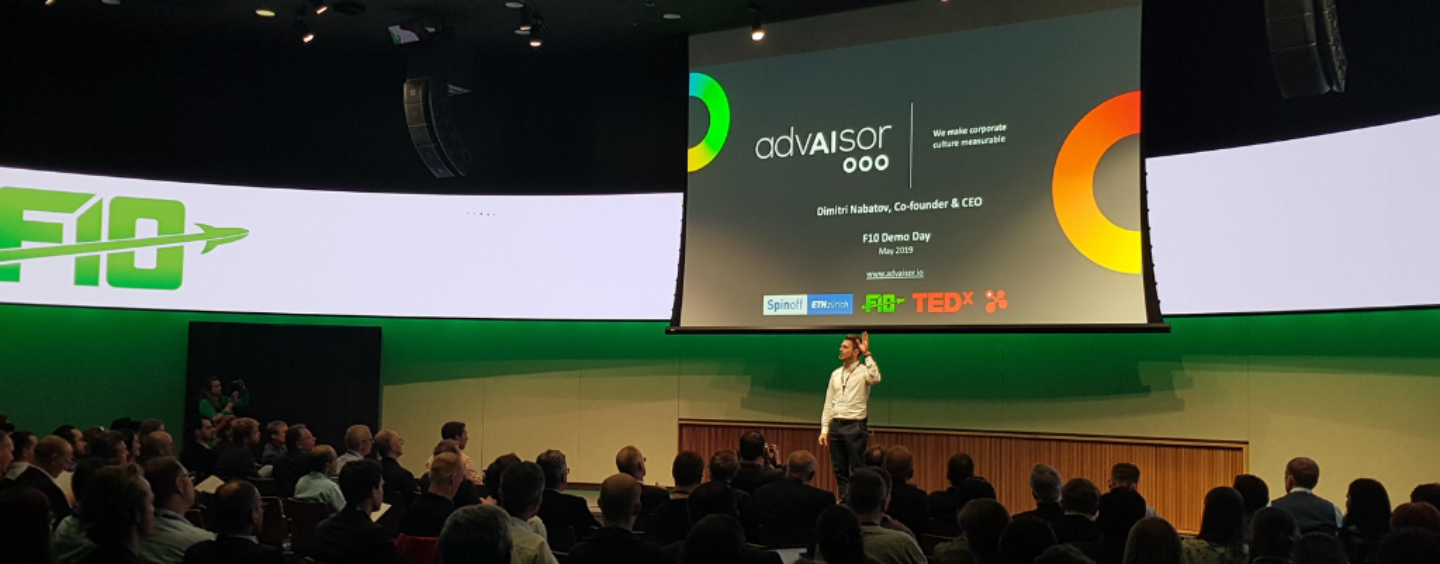
6 Reasons Why Swiss Fintechs Should Apply for the F10 Accelerator Programme This Year
by Fintechnews Switzerland May 23, 2019If you are interested in Switzerland’s fintech scene, then you are probably already familiar with F10, a startup incubator and accelerator sponsored by SIX, the company behind the Switzerland Stock Exchange.
F10 is a startup cultivator focused on fintech, insurtech and regtech. The organisation’s magnum opus are six-month accelerators held twice a year, aiming to transform startups from lofty ideas into successful growing companies with customers.
F10’s overall goal however, is to foster collaboration between startups and big international financial players—particularly between fintechs and banks, insurances, as well as SIX.
With a recent demo day over and done with, the Startup Acceleration Program has opened its doors for the next batch of fintechs, regtechs and insurtechs to join THE HOME OF FINTECH for the next batch of the P2 “Protoype to Product” program running from October 2019 to April 2020. The program is open to startups with a prototype; meaning that they have identified and validated a real problem the finance industry is currently facing and that needs solving to address the needs of potential customers.
The F10 team together with the Fintech experts from the ecosystem will help startups grow their validated ideas into viable MVPs.
Applicants interested to join Batch 5 can submit their applications until 2nd of June 2019. Teams or startups do not need to be incorporated to participate.
Joining an accelerator can be hard work, time consuming, and very, very rushed, so any reticence to try one’s luck in an accelerator is understandable. For all the cons that one has to consider though, accelerators can provide some valuable input into a startup’s story.
1. Free Office Space & CHF 15,000 of reimbursement
Even if your startup is not based in Zurich, F10 will be offering free office space, during the program and up to CHF 15,000 of reimbursement for expenses, as long as startups meet all the required milestones.
The allowance will be doled out in 3 batches, depending on whether the milestones mentioned above are fullfilled.
Meanwhile, F10 will endeavour to help with marketing by putting these startups in the spotlight for six months, while facilitating connections with relevant corporate partners or potential stakeholders.
2. Gain Legal and Regulatory Help
The F10 Fintech Accelerator program is specifically tailored for fintech, regtech and insurtech startups—traditionally very regulated sectors (with obvious reference to regtech). Therefore, it could be invaluable for startups to gain the legal and regulatory support, especially with collaboration from some of Switzerland’s strongest organisations in the F10 network.
Operating with knowledge on how to navigate these factors could allow a startup the ability to build their business with compliance in mind from the get-go, which could grant the speed needed in these often competitive sectors, and potentially help avoid costly pivots in the future.
3. Getting Up Close and Personal with Established Mentors
F10 is sponsored by SIX, the company behind Switzerland’s stock market. The affiliation grants participants access to mentorship from SIX, as well as potential tutelage from the Baloise Group, Julius Bär, Generali Group Switzerland, PwC Switzerland, Capgemini, Raiffeisen, Zürcher Kantonalbank, Eny Finance and ERI Bancaire.
4. Gain Access to Funding
While F10 does not invest in startups directly, their corporate partners listed above do. F10 also works together with venture capital and Angel networks, who are invited to the organisation’s Investor Day and Demo Day—in which fintechs will be getting up on stage to make their case.
5. Become fintech success stories like Apiax or Sonect
The F10’s alumni have gone on to make a name for themselves in fintech. One of these is Apiax, which has recently been named Early Stage Startup of the Year at the Swiss Fintech Awards 2019. Apiax is a Zurich-based regtech that offers digital tools to help companies navigate through the complex world of financial regulations. Apiax’s vision is to become a digital lighthouse in a regulated world by making compliance lean, easy and efficient via an app, or integrated into banking processes via API.
Apiax, and another F10 alumni Sonect were also named in our very own list of the top 19 fintechs in Switzerland this year. Sonect is a P2P matchmaking platform that utilises location to connect those who want to withdraw cash with those who want to deposit it. The platform wants to turn an area’s shops into virtual ATMs using just a smartphone or its POS-system, in a bid to reduce the “cost of cash”.
6. Avoid Common Startup Pitfalls
It is a common rhetoric that 90% of startups fail. There are the typical issues that could have led to this trend, like difficulties with funding, stiff competition, timing and difficulties in customer acquisition. Then there are factors that could uniquely impact early stage startups: trying to do too many things at once, legal issues, and even burnout.
Accelerator programs, with its systematic procedures and clear milestones could help startups turn their goals into valid stepping stones, and more importantly, help to shift focus onto the important groundwork to get their business up, instead of stretching themselves thin.
The F10 program teaches startups on how to run a business from scratch including doing market research, working out a unique selling proposition which
distinguishes companies from competitors, finding the ideal team structure, draft business plans and develop investment strategies.
Startups interested in joining F10’s 5th batch for its P2 “Prototype to Product” program running from October 2019 to April 2020 can apply here. The application period will close on June 2.
Featured image via advaisor AG on LinkedIn


